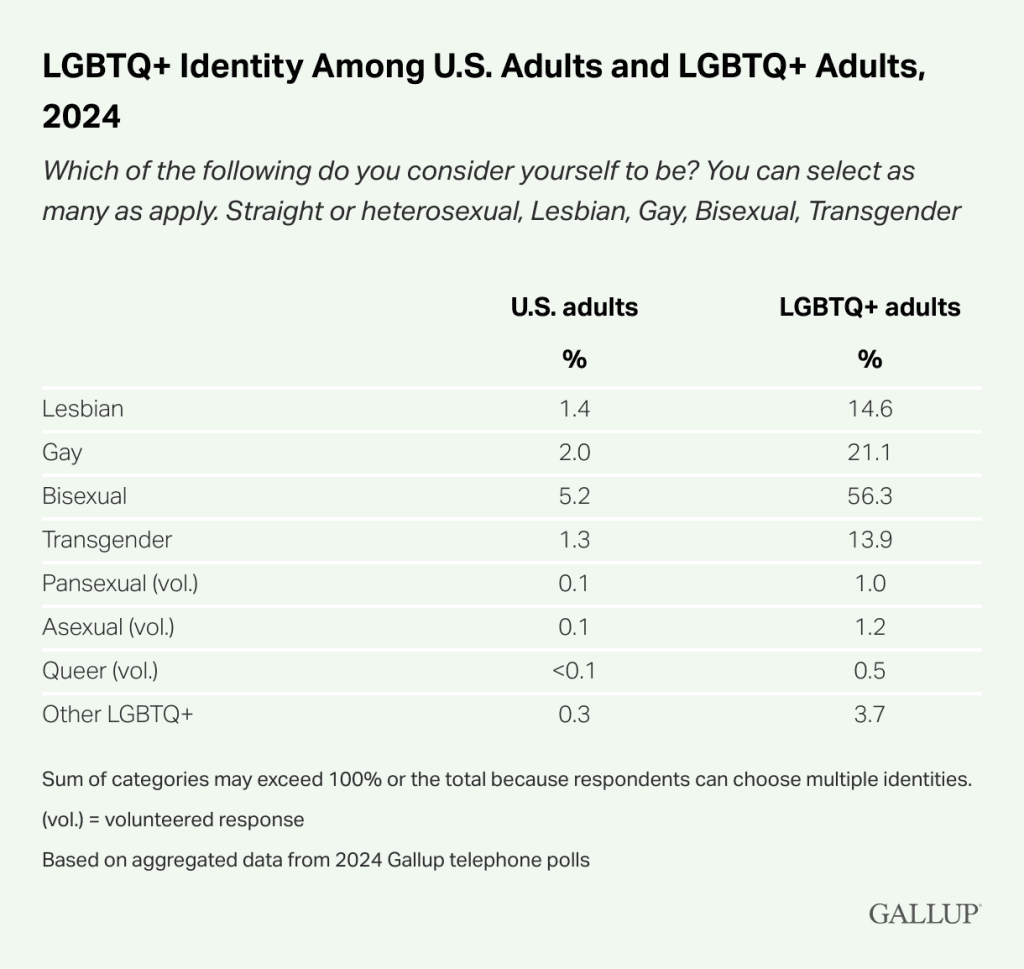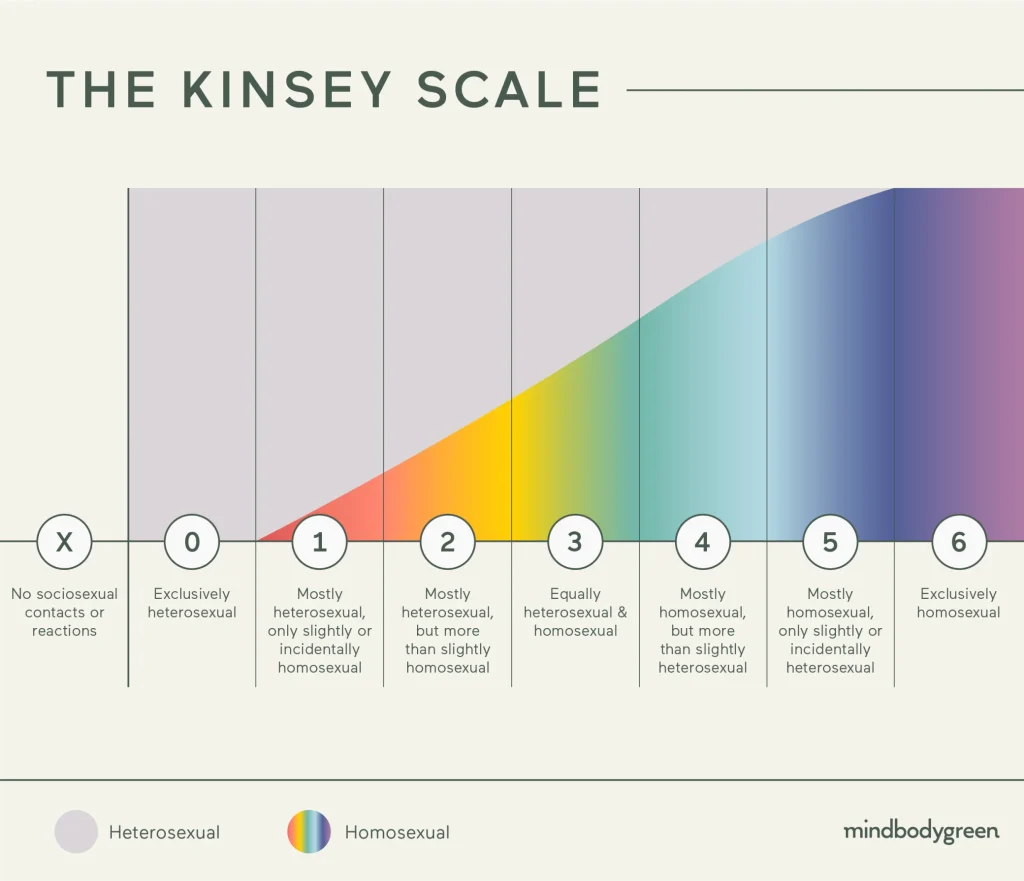Key Takeaway
Bicurious means being mainly attracted to one gender while feeling open or curious about attraction to another gender. It signals exploration, not a fixed sexual identity. (Merriam-Webster)Table of Contents
What Does “Bicurious” Mean?
Bicurious describes someone who usually dates one gender but is open to exploring attraction, romance, or sex with another gender. It emphasizes curiosity rather than certainty about one’s orientation—different from bisexual, which is an identity involving ongoing attraction to more than one gender. (Merriam-Webster)
Bicurious: Open to or curious about experiences beyond your usual gender of attraction—an exploratory mindset rather than a settled sexual orientation. (Merriam-Webster)
Bicurious vs. Bisexual vs. Heteroflexible/Homoflexible vs. Sexually Fluid
| Term | Core Meaning | Is it an identity? | Typical Duration | Notes |
|---|---|---|---|---|
| Bicurious | Curiosity about attraction/experiences with another gender beyond your usual pattern | Usually no (mindset) | Temporary or ongoing exploration | Openness + uncertainty; may or may not lead to a label |
| Bisexual | Attraction to more than one gender | Yes | Ongoing | Largest share of LGBTQ+ adults identify as bi |
| Heteroflexible/Homoflexible | Mostly straight (or mostly gay) with occasional openness to exceptions | Sometimes | Variable | Often overlaps with bicuriosity but not always driven by active questioning |
| Sexually fluid | Capacity for changes in sexual responsiveness over time and context | Can be | Long-term variability | A concept about change; not the same as a single exploratory phase |
Is “Bicurious” a Sexual Orientation?
Not typically. It’s better understood as a phase, question, or open stance during self-discovery. Some people later identify as bisexual, pansexual, queer—or keep no label at all. (Merriam-Webster)
Why More People Talk About Bicuriosity Today
- Greater visibility of LGBTQ+ lives and language.
- Generational differences: surveys show younger cohorts are less likely to call themselves “completely heterosexual.” (YouGov, YouGov)
- Data trends: bisexual people represent the largest share of LGBTQ+ adults in recent U.S. surveys, normalizing multi-gender attraction. (Gallup.com)
Signs You Might Be Bicurious (No diagnosis—just prompts)
- You catch yourself day-dreaming or fantasizing about another gender.
- You feel a mix of excitement and nerves imagining a same-gender date.
- You’d like to try flirting, kissing, or dating outside your usual pattern.
- Labels feel premature, but curiosity feels real.
- You want to explore respectfully—with consent and clear boundaries.
(If you simply enjoy the idea theoretically but don’t feel a pull to explore, heteroflexible or homoflexible might feel closer.) (Them)
Myths & Misconceptions—Debunked
- “Bicurious equals bisexual.”
Bicurious is exploration; bisexual is an identity rooted in ongoing attraction to more than one gender. (Merriam-Webster) - “You must ‘prove’ you’re bi.”
Conflating bicuriosity with a “trial period” to earn a label is a biphobic trope—identity isn’t a test. (Them) - “Sexuality is fixed; curiosity is confusion.”
Research on sexual fluidity shows that responsiveness can shift for some people over time. (psych.utah.edu)
Safe, Respectful Ways to Explore (If You Want To)
- Start with reflection. Journal about what feels exciting vs. purely theoretical.
- Communicate with partners. Share intentions, boundaries, and safer-sex needs before any step.
- Use inclusive spaces and apps. Choose communities and dating tools that welcome questioning people. Healthline and WebMD offer practical overviews for beginners. (Healthline, WebMD)
- Consent, always. Check in frequently; consent can change at any time.
- Go at your pace. There’s no deadline and no “right” sequence.
Talking to a Current Partner
- “I love us and I’m not planning anything without you. Lately I’ve been curious about my sexuality. Can we talk about how I’m feeling and what, if anything, would feel safe for us?”
- “I don’t need a label right now. I’d like your support while I figure things out.”
- “If we ever explore, it must be consensual, transparent, and reversible at any point.”
The Social Reality: Stigma, Erasure & Community
Bicuriosity can be trivialized, and bisexuality often faces erasure—being ignored or viewed as “just a phase.” Understanding these dynamics can make your journey easier and more respectful to others who live under the bi+ umbrella every day. (Them)
Data Snapshot
- 9.3% of U.S. adults identified as LGBTQ+ in 2024 (Gallup). Over half of LGBTQ+ adults identify as bisexual. (Gallup.com)

- On the Kinsey-style scale, sizeable shares of young adults place themselves between exclusively straight and exclusively gay. (YouGov)

Respectful Exploration Checklist
- I know my boundaries and can say “no” or “not now.”
- I’ve shared my intentions honestly with anyone involved.
- I have safer-sex supplies and testing info.
- I have a debrief plan (alone or with a trusted friend/therapist).
- I’m kind to myself regardless of the outcome.
When to Seek Support
If curiosity brings anxiety, shame, or relationship conflict, talking with an LGBTQ-affirming therapist or peer support organization (e.g., The Trevor Project; local LGBTQ+ centers) can help. (Verywell Mind)
Conclusion
Bicuriosity is an invitation to learn about yourself—not a mandate to perform or to adopt a label. If you do explore, do it slowly, safely, and respectfully. If you don’t, your curiosity is still valid.
Looking for a welcoming place to chat or date while you’re questioning? Try Bearwww—filters and community spaces that respect your pace. Join Now for Free
Bicurious: Frequently Asked Questions
What does “bicurious” mean?
“Bicurious” describes someone who is primarily attracted to one gender but feels open or curious about attraction, dating, or sexual experiences with another gender. It signals exploration rather than a fixed identity.
Is bicurious the same as bisexual?
No. Bisexual is an identity involving ongoing attraction to more than one gender. Bicurious is an exploratory mindset that may or may not lead to a specific label later.
Is bicuriosity a sexual orientation?
Not usually. It’s better understood as a phase of questioning or openness during self-discovery. Some people later identify as bi, pan, queer—or keep no label at all.
What are signs I might be bicurious?
- You fantasize or daydream about another gender.
- You feel excited or nervous imagining a same-gender date.
- You want to try flirting, kissing, or dating outside your usual pattern.
- Labels feel premature, but curiosity feels real.
How can I explore bicuriosity safely?
Reflect first, communicate boundaries and expectations, prioritize consent and safer sex, choose inclusive spaces/apps, and go at your own pace. You never have to act on curiosity.
What’s the difference between bicurious and heteroflexible/homoflexible?
Flexibility often means “mostly straight” or “mostly gay” with occasional exceptions. Bicuriosity typically involves active questioning and a desire to explore, not just rare exceptions.
Can I be bicurious if I’m in a relationship?
Yes. Curiosity can arise at any time. If you’re partnered, discuss feelings openly and agree on clear boundaries before taking any step. Consent and transparency are essential.
How do I talk to my partner about bicuriosity?
Be honest and kind. Example: “I love us and I’m not planning anything without you. I’ve been curious about my sexuality and would like to talk about how I’m feeling and what, if anything, would feel safe for us.”